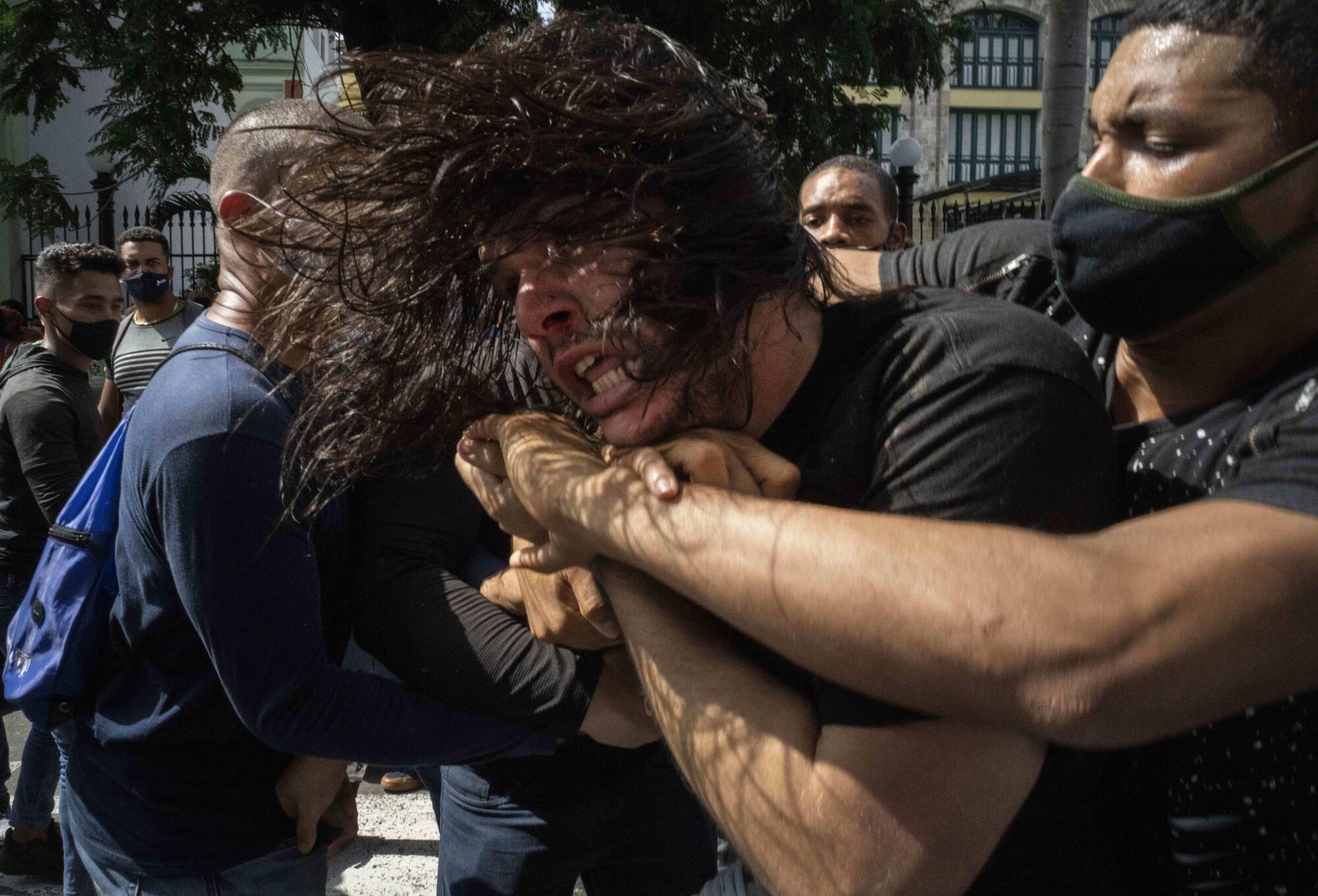
- Share via
I had just gotten into an elevator in Las Vegas when I heard the familiar accent. I looked up and saw a couple with a stroller looking intently at their phones. I was able to make out the word “Cuba” in a familiar accent.
Having grown up in Texas around mostly Mexicans and Mexican Americans, I always sought out the other Cubans around me. Thankfully, our accent is a dead give-away, and in this case, cramped into a small elevator, it was easy to strike up a conversation.

“Son cubanos también?” I asked. ‘
“Sí, sí, viste lo que está pasando ahora en Cuba?” The man pulled up his phone to show me.
“Se está calentando la cosa.”
I knew instantly what he was talking about — there must be protests going on, I thought. I grabbed my phone and saw the texts I had missed earlier from relatives pinging me with the news coming from the island.
There were indeed protests, and they were large and spreading. My mind kept racing about what might be happening. My heart started pounding when I heard the shouts of “Libertad and Patria y Vida.”
The protests that took place two years ago this week in Cuba were something many of us in the U.S. and on the island had been waiting on for decades.
You grow up as the child of exiles with these visions of Cubans on the island taking to the streets and pleading for their freedom.
And this time Cubans on the island finally seemed to have had enough. The long lines for food and the constant power outages that had plagued the island in the summer of 2021 were exacerbated by the effects of the COVID-19 pandemic on Cuba’s economy.
Was this really our time? It didn’t happen when the Soviet Union fell, or when Fidel Castro died, or even after the diplomatic attempts by President Obama in the 2010s.
But this felt different.
Until it didn’t.
Regimes like the one in Cuba don’t stay in power for more than 60 years by being warm and cuddly. The local authorities deployed plainclothes storm troopers, equipped them with bats, sticks and whatever else they could find, to brutally beat down the protesters who had taken over the streets of most cities and towns in Cuba.
They arrested hundreds of people who are still languishing in jail, forced into exile hundreds of others and created the conditions where Cubans of all ages are looking to get off the island by any means.
The hope three strangers felt on a short elevator ride, the emojis and memes sent on group chats and the camaraderie displayed on the streets of Miami with those on the island on that day and the days that followed vanished once again.
So we wait. Not for the opportunity to reclaim any stolen property as some still insist are the plans of Cuban Americans, or to show off the riches of capitalism to our families in Cuba.
No, we wait for the opportunity to see Cubans live the life they choose, be it on the island or off. To choose their leaders, to choose to worship their God or not. Or to just be. To not have to live with politics or family separation being part of every aspect of your life.
So as we mark the protests that took place two years ago, we should remember those that are still in jail awaiting trial for having the courage to take to the streets to finally be heard.
More to Read
The Latinx experience chronicled
Get the Latinx Files newsletter for stories that capture the multitudes within our communities.
You may occasionally receive promotional content from the Los Angeles Times.








